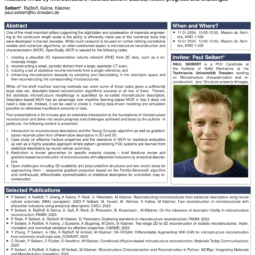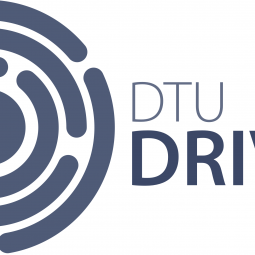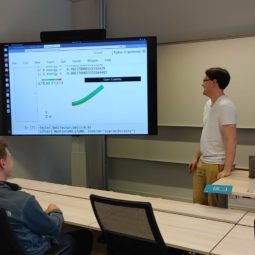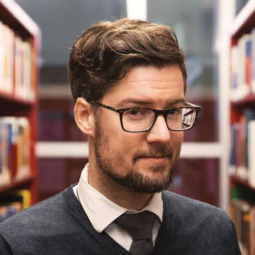SCoPE: Foundations of Microstructure Reconstruction
Within its series “Spotlights in Computational Physics and Engineering (SCoPE)” DTU DRIVEN is welcoming Paul Seibert from the Institute of Solid Mechanics at Technische Universität Dresden for his short course on Foundations of Microstructure Reconstruction. The 4-parts short course take place on 11 and 12 January 2024, 10h00-12h00, room MNO.1030. Further details are given in … Continued





